7 Types of Roof Tiles for Your Home
Sometimes, the most stylish options are also the most durable


There's a great debate about whether tile or shingle roofs are better, but tile roofing often wins in longevity, durability, and curb appeal. The seven types of roof tiles include clay, concrete, slate, composite, metal, wood, and solar tiles. Not every type of roof tile is an ideal option for every home, so let’s discuss how these options compare to help you choose the best one for your home.
The many factors that play into choosing a roofing material may surprise you, such as durability, cost, style, and the climate in which you live. Many homeowners choose asphalt, but there are various types on the market. A roofer can advise you on the best materials for your home and region.

1. Clay Roof Tiles
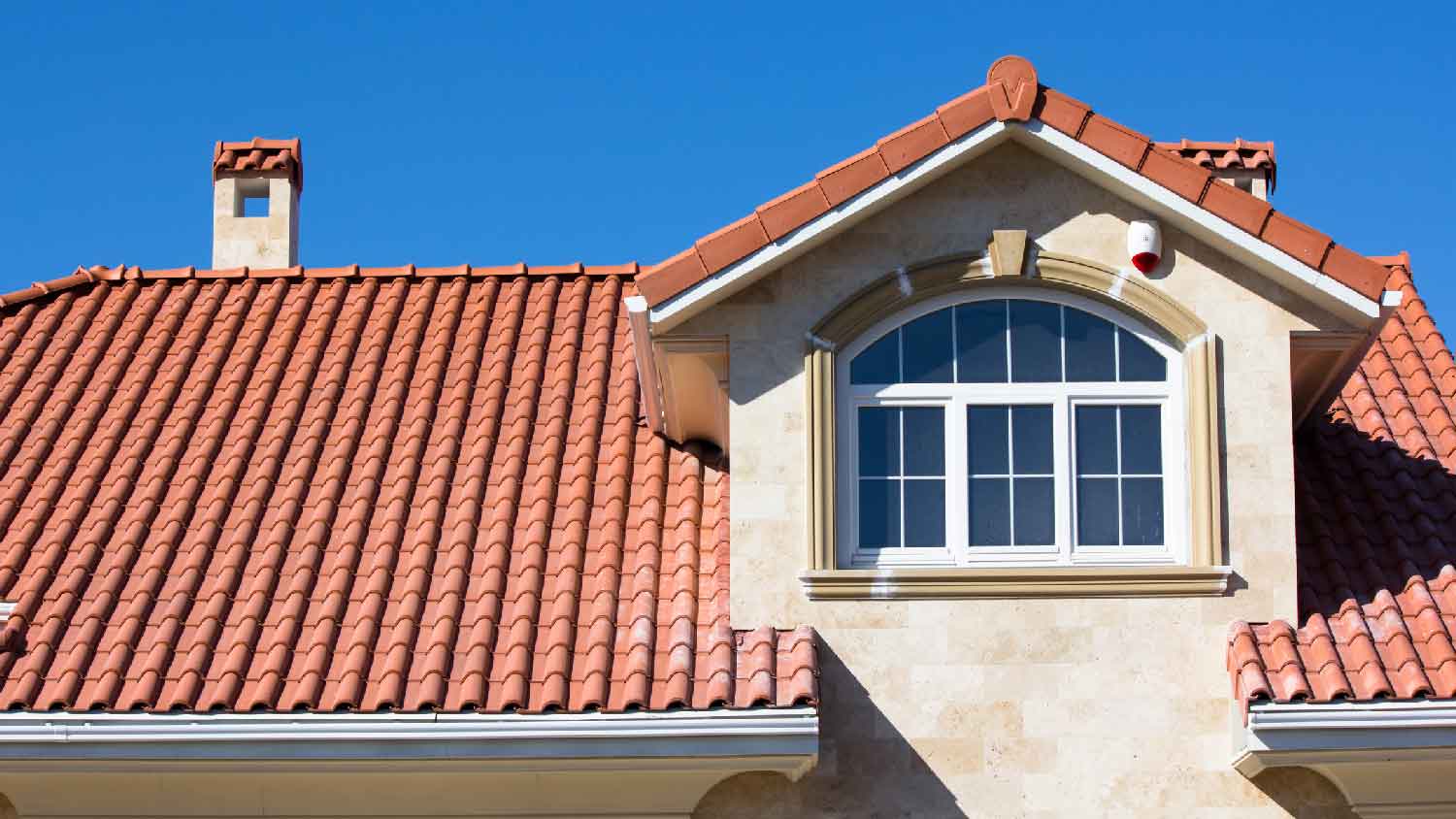
Clay roof tiles—often referred to as terracotta roof tiles—are one of the most common varieties and can suit a range of classic home styles. This centuries-old type of roofing tile has withstood the test of time for many reasons. Clay tile roofs can last 100 years or more with good maintenance, offer excellent insulation for home energy efficiency, and are both pest- and fire-resistant. Their vibrant look also increases your curb appeal.
On the other hand, there are both pros and cons of this roofing tile. Clay tiles cost up to $25 per square foot, making them one of the most expensive options. They also add a lot of weight to your roof, so they may require structural reinforcement, and they’re prone to cracking from impact.
| Pros | Cons |
|---|---|
| Long lifespan | Very heavy |
| Rot, pest, and fire-resistant | Expensive |
| Great curb appeal | Hard to install |
Best for: Mediterranean-style homes in warm climates
2. Concrete Roof Tiles
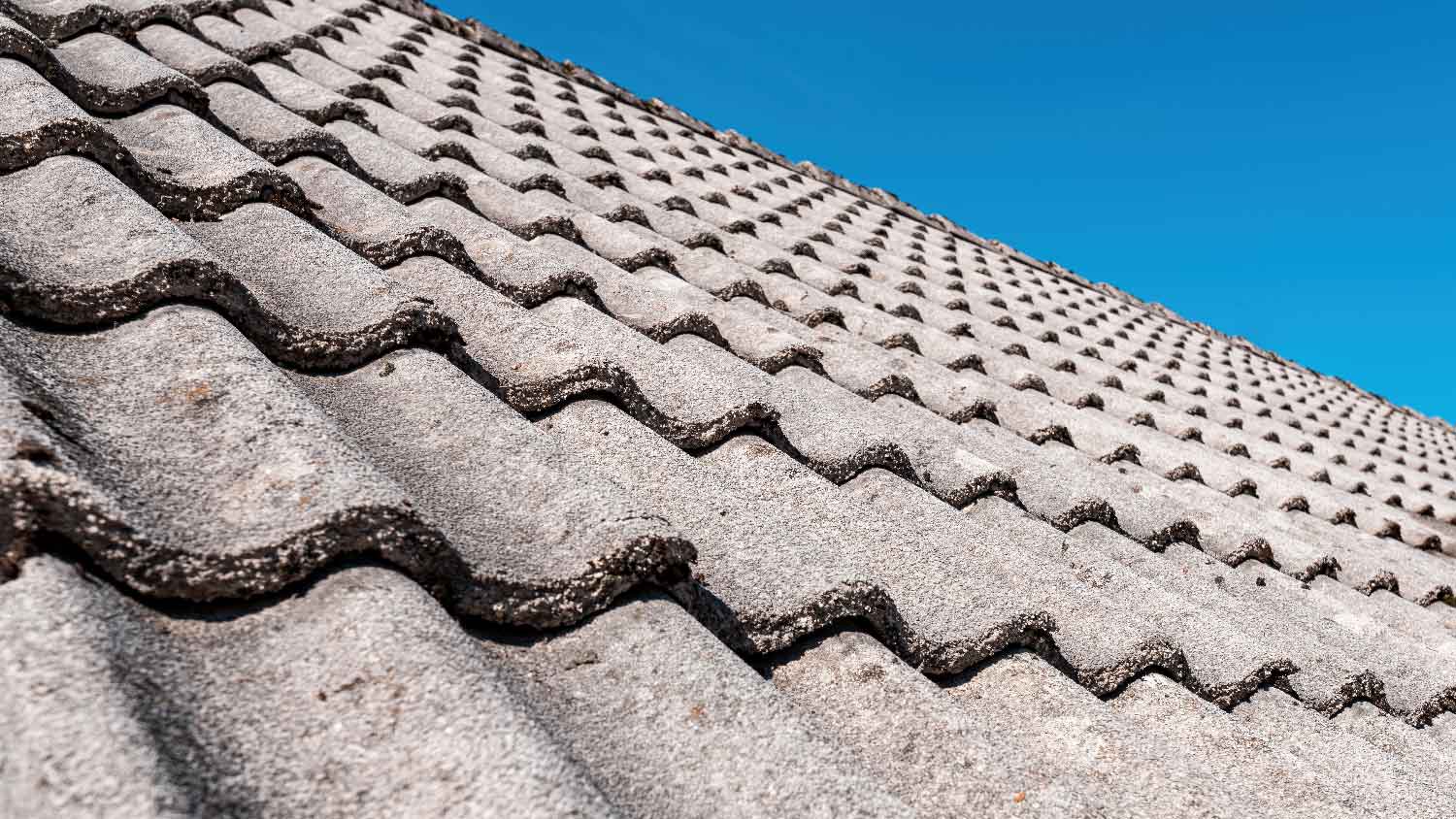
Choosing between clay and concrete tiles is a common dilemma. Like terracotta, concrete roof tiles can last for 100 years or more, are resistant to common roof issues, and are made from a combination of natural materials. Concrete tiles are even heavier than clay roof tiles, so they’re more likely to require structural reinforcements.
Concrete tiles are ideal for areas prone to extreme weather, as they’re more impact-resistant than clay. There’s minimal upkeep and repairing required, so maintenance costs are low, and up-front costs are also lower than with clay tile. Concrete tiles cost between $3 and $12 per square foot.
| Pros | Cons |
|---|---|
| Impact resistant | Absorbs water |
| Customizable design | Very heavy |
| Long lifespan | Difficult to install |
Best for: Homes prone to hail and harsh weather
3. Slate Roof Tiles
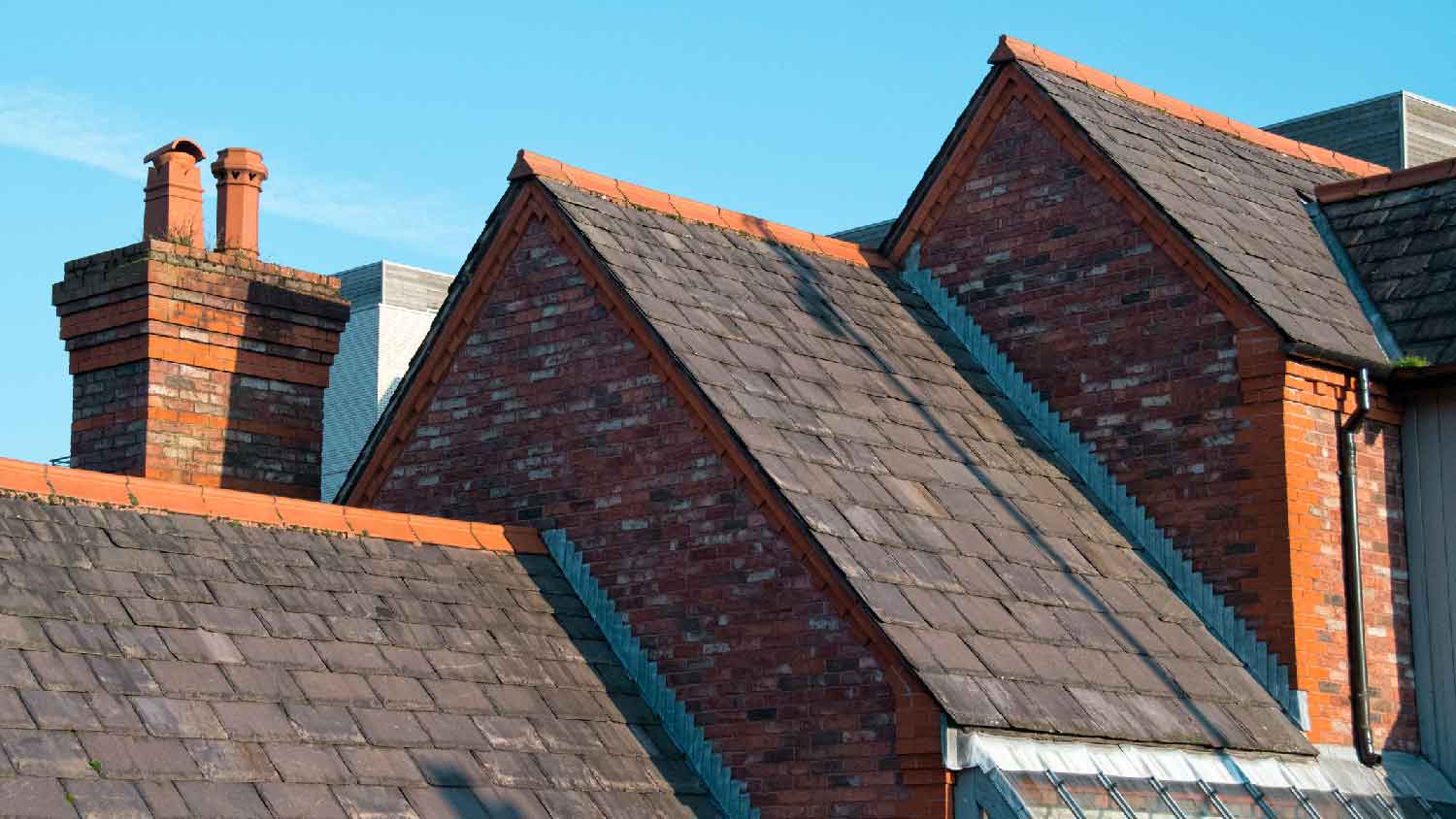
While slate tiles are one of the most expensive roof replacement cost options, these tiles can last between 100 and 200 years. Slate tiles are resistant to fire, rot, and pests, but they can crack from impact or when installed improperly. They also come in a range of eye-catching natural hues that can significantly increase your home's curb appeal and your home's resale value.
Slate is the heaviest roofing material you can install, so you’ll almost certainly need structural upgrades to be able to support the material. It’s also tricky to install, which pushes the price to between $10 and $30 per square foot.
| Pros | Cons |
|---|---|
| Longest lifespan | Very heavy |
| Max curb appeal | Expensive |
| Minimal upkeep | Cracks from impact |
Best for: Homeowners looking for excellent curb appeal and the longest-lasting roof material
4. Composite Roof Tiles

True to their name, composite roof tiles include a combination of materials, often both plastics and natural materials. In many cases, you can find composite tiles composed of recycled materials. The wide range of designs mimics terracotta, slate, or wood without the weight or risks that come with each option. However, they are still quite heavy and tricky to install compared to asphalt shingles.
Composite roof tiles cost between $4 and $6 per square foot, while specialized designs, such as composite shakes, can cost up to $10 per square foot. Most composite tiles last between 30 and 50 years before they need replacement.
| Pros | Cons |
|---|---|
| Budget-friendly | Shorter lifespan |
| Highly durable | Tricky to install |
| Eco-friendly | Heavier than asphalt |
Best for: Budget and eco-friendly alternative to clay, stone, and wood
5. Metal Roof Tiles
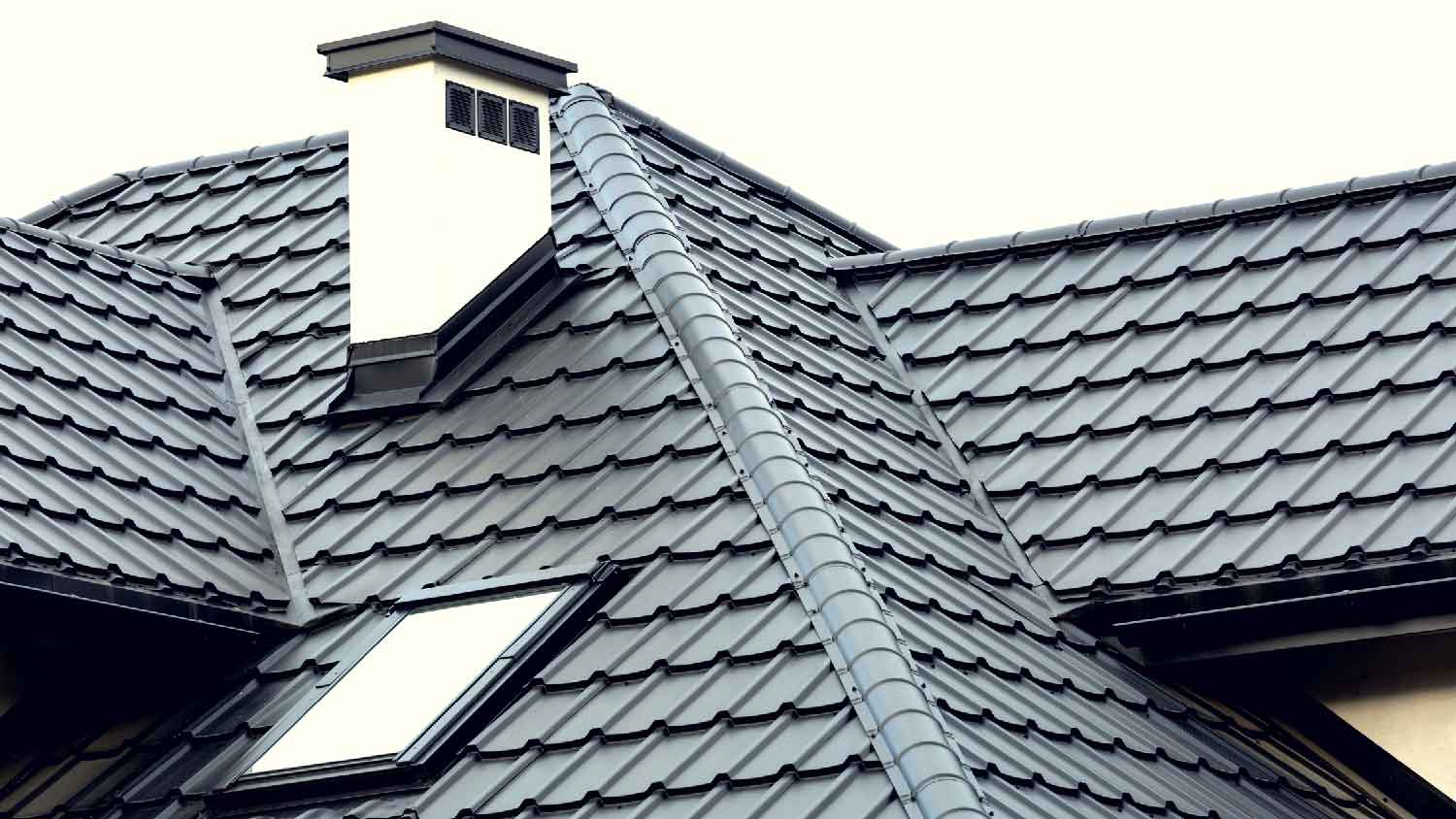
Metal roof tiles are comparatively lightweight, so you will rarely need structural reinforcement to install them. The material is naturally reflective, so it reduces solar heat gain and can help keep your home cool in the hotter, sunnier months. Metal roof tiles are more affordable than many other high-end options, totaling between $6 and $16 per square foot. From steel and aluminum to copper and zinc, metal tiles come in a range of designs, colors, and sizes, and these factors will affect cost, curb appeal, and lifespan.
Most varieties require minimal upkeep and repairs but can be prone to dents from hail or fallen trees. Since the metals are easily accessible and recycled, metal tiles offer another eco-conscious option.
| Pros | Cons |
|---|---|
| Highly customizable | Can dent from impact |
| Fire-resistant | Slippery when wet |
| Reflect heat | Can be noisy in the rain |
Best for: Keeping homes cool in sunny climates or shedding snow in areas that see heavy accumulation
6. Wood Shakes
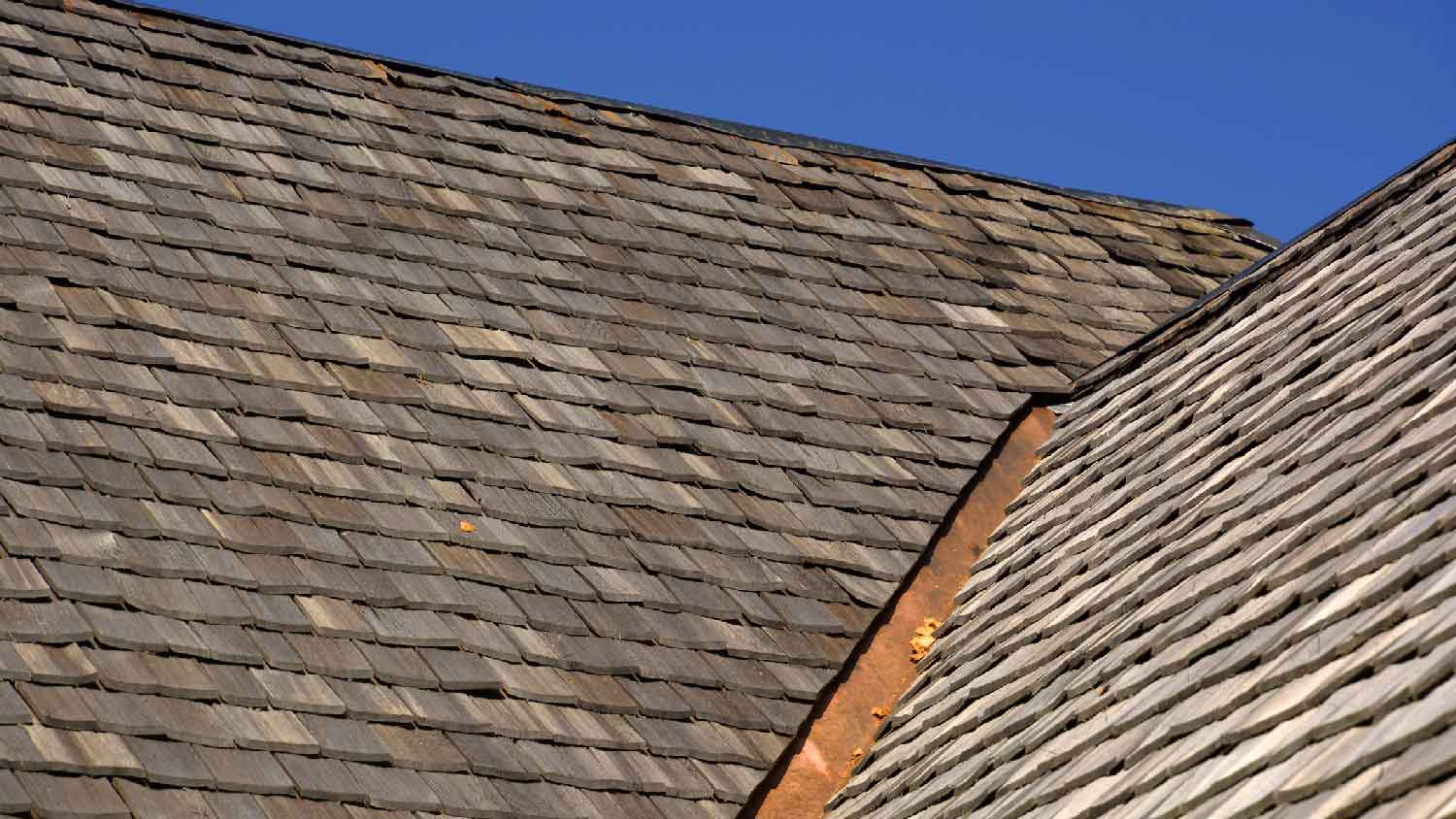
Not to be confused with wood shingles, wood shakes offer a rustic, naturally sculpted look for a range of homes. Victorians, cottages, and Craftsman homes often benefit from wood shakes, though you'll only see them on a few designs. Many cedar wood shakes come in pre-treated and composite varieties that mitigate the common issues with a wood roof, such as fire, rot, and pest risks.
Wooden roof tiles are also an eco-friendly and sustainable choice. They do require resealing and more frequent repairs than most other roof tiles, though. You will likely need to repair wood shakes every five to seven years. They do have the shortest lifespan of any roofing tile option and will only last for 25 years, on average, even with proper maintenance. Wooden roof tiles cost between $6 and $15 per square foot.
| Pros | Cons |
|---|---|
| Classic look | Lots of maintenance |
| Lightweight | Prone to pests |
| Highly customizable | Not fireproof |
| Eco-friendly | Short lifespan |
Best for: Historic and Craftsman-style homes
7. Solar Roof Tiles
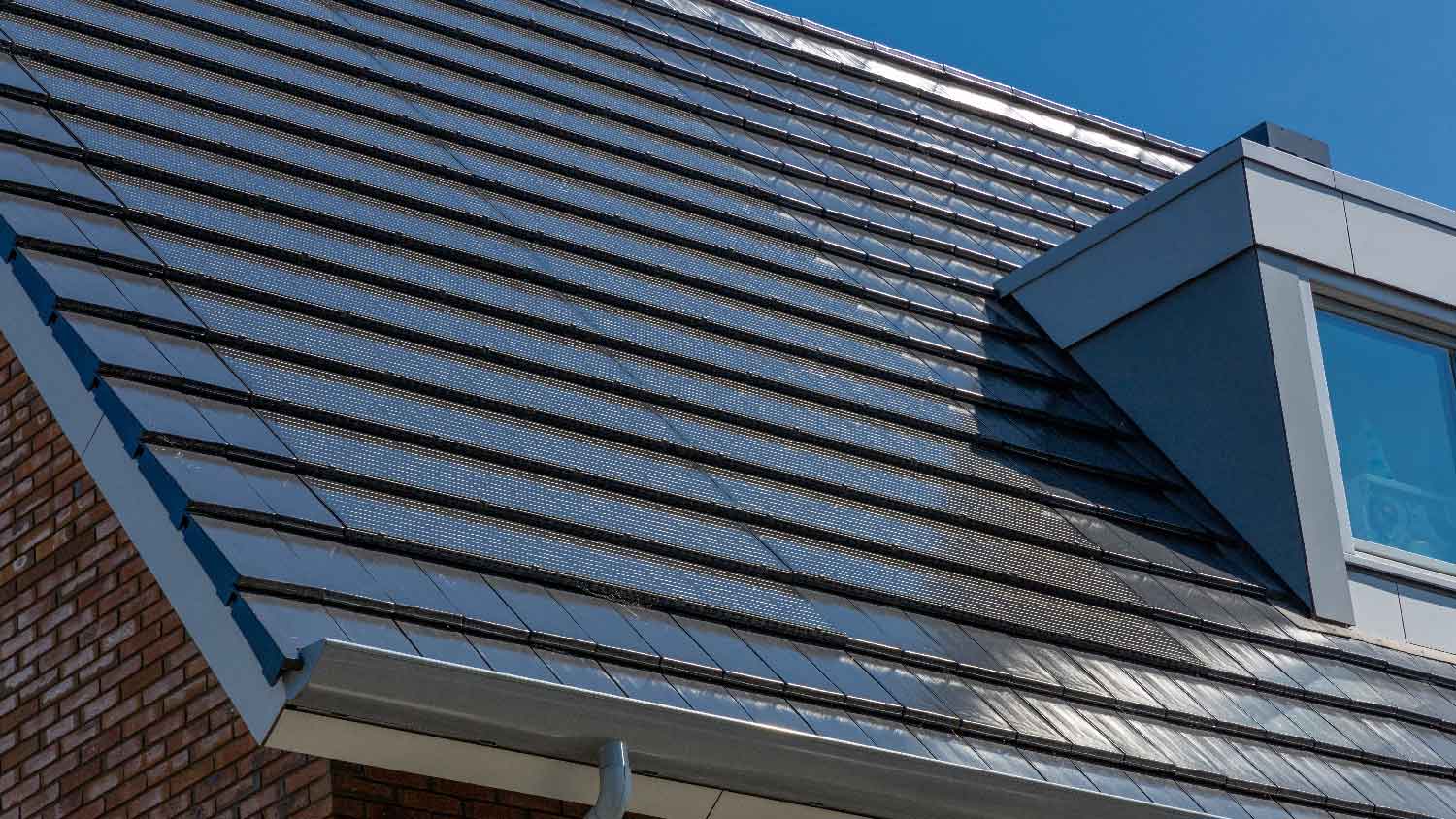
Solar roof shingles are an excellent alternative to solar panels. Solar tiles blend with the design of your roof and generate energy to reduce how much you rely on the grid and fossil fuels for energy. As such, they’re one of the most environmentally friendly roofing tile options.
The cost of solar roof tiles is one of the primary downsides, as the cost ranges from $20 to $25 per square foot. However, you may be able to take advantage of local and federal incentives that can offset the price.
Solar roof tiles require professional installation by either a solar installer or a local roofing company, so this is one roof tile option that’s not DIY-friendly.
| Pros | Cons |
|---|---|
| Generate energy | Energy results vary |
| Last up to 30 years | Expensive to repair |
| Increase home value | Varying curb appeal |
Best for: Eco-conscious homes seeking solar panel alternatives
How to Choose the Right Tile for Your Roof
Choosing the right tile for your roof means thinking about a few key factors and deciding which you want to prioritize. You should consider the following, or you can defer to the roofer you hire to help you choose.
Upfront cost: Roof tiles cost anywhere between $3 and $30 per square foot, which means prices for a standard roof size can range from $5,400 and $54,000. Make sure you choose a material that fits into your budget. Concrete is one of the least expensive options, while copper and slate are the most expensive.
Maintenance requirements: Consider how much maintenance your roof tiles will need to compare ongoing costs. Slate needs almost no maintenance, while wood roofs require regular resealing, fireproofing, and repairs.
Energy efficiency: Many tile roofs can boost home efficiency more than asphalt shingle roofs. For maximum insulation, go with clay roof tiles. For maximum energy efficiency overall, consider solar roof tiles to offset electricity consumption.
Durability: Think about your climate and the severe weather your roof will be see. Options like clay and even slate can crack from impact, and metal can dent if it’s hit by tree debris or hail. Solar tiles, concrete tiles, and some composite tiles tend to endure strong winds and hail best.
Curb appeal: Your roof plays a crucial role in your home’s overall curb appeal, so think about the appearance you’re going for when deciding.
Lifespan: Finally, consider how long the roof tile options you’re considering last. Slate, clay, and concrete tile roofs will last a lifetime, while a cedar roof will only last for 25 years. Balance up-front cost and lifespan for the best value.
| Type of Roof Tile | Longevity (Years) |
|---|---|
| Clay | 100+ |
| Concrete | 100+ |
| Slate | 100-200 |
| Composite | 30-50 |
| Metal | 40-80 |
| Wood | 25 |
| Solar | 20-30 |





- Roofers
- Metal Roofing
- Roof Repair
- Roof Inspection
- Vinyl Siding Repair Contractors
- Flat Roofing Companies
- Commercial Roofing
- Emergency Roofing Companies
- Leaky Roof Repair
- Metal Roof Repair
- Business Roof Repair
- Flat Roof Repair
- Tile Roof Repair
- Slate Roofers
- Rubber Roofers
- Roofing & Siding
- Metal Roof Installation
- Affordable Roofing
- Roof Sealing
- Attic Ventilation Contractors
- What Are Ceiling Tiles Made Of?
- The Pros and Cons of Tile Roofs
- 4 Best Roofing Materials for When You're on a Budget
- 13 Types of Roofing Materials and How to Choose the Right One
- Energy-Efficient Roofing: Here’s What to Know
- 29 Striking Shower Tile Ideas to Inspire Your Bathroom Renovation
- Standard Tile Sizes: Find the Best One for Your Tile Installation Project
- 10 Bathroom Tile Trends for a Refreshing Upgrade
- What Is the Best Tile for Bathroom Floors?
- The Pros and Cons of Penny Tile: Is It the Right Fit for Your Home?











